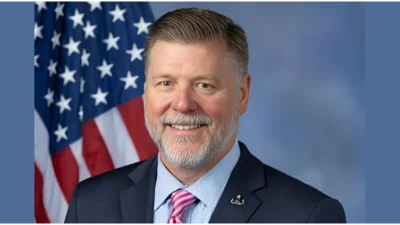WASHINGTON - Ways and Means Committee Ranking Member Sander Levin (D-MI) today made the following statement on the floor of the House of Representatives in support of the H.R. 3630 Conference agreement:
The basic fact is that this legislation is very different from the December House Republican bill. Very different. And any efforts to mask that are false. That House bill was the main bill before the Conference Committee. The basic fact is the Conference Committee made major changes to the House bill that passed in December essentially on a partisan basis. And therefore this legislation is much better for the American people.
The Speaker said this about this bill, “Let's be honest, this is an economic relief package, not a bill that's going to grow the economy and create jobs." That's not an honest statement. It's wrong. This is a bill that relates to the economic growth of the United States of America. We are recovering. And this bill will provide a boost to continue that recovery.
It continues the 2% payroll tax through the calendar year. And it is not offset as was true of the House Republican bill in December. That bill had massive harmful cuts that would have been countercyclical and would have undermined further economic growth. So in that respect this is very, very different.
It's also very different in terms of unemployment insurance. Let's be clear about that. The bill that the Republicans passed through the House that was the main bill before the Conference Committee would have slashed 40 weeks of unemployment insurance for millions of Americans. And this bill essentially changes what was in the House bill. It extends unemployment insurance through the rest of the year up to 99 weeks through May, up to 79 weeks through August and up to 73 weeks through December, depending on the level of unemployment.
Let me just say, our Chairman has talked about the requirement that people look for work. That's already in the law of every state. That isn't a meaningful “reform." In terms of job search, everybody not only registers but also, as I said, is required to look for work. And you know, I find it an insult to the unemployed of this country to say essentially that we're simply giving them a check instead of a paycheck. If you talk to the unemployed laid off through no fault of their own, they are looking for work. They had a paycheck -- in most cases year after year after year. They work for their unemployment insurance, and to simply label this an effort to get people off of unemployment insurance, unemployment insurance is not a welfare program. People work for it and they need that assistance as they look for work.
The bill that passed through the House had a GED requirement. That's out. To say to people, you don't get a check if you're not in a GED program when there are 160,000 people in this country who are on waiting lists, that's out of here because it deserved to be out of here. And in terms of the Republican effort to test people for drugs, the agreement is very limited. So it is really masking the reality to call this major reform.
The agreement freezes in terms of the reimbursement for physicians through December. And let me just close by saying a few words about the limits on this bill because there are limits. It would have been much better to treat unemployment insurance as an emergency as we have for 20 years. There is the highest level of long-term unemployed on record in this country, which is another reason not to blame the unemployed for their unemployment as the House bill in December did. And some of the rhetoric on this floor continues to do that. We were not able to obtain this, and I want to say this in terms of a precedent. In my judgment, it should not serve as a precedent. The precedent is 20 years treating federal unemployment insurance as an emergency. And let me also say it's deeply unfortunate that some on the other side insisted that federal workers carry a disproportionate share in the cost of this bill even after there were put forward bipartisan payfors that would have covered the cost of UI. In the bill that came through here on a partisan basis in December there would have been an impact on federal employees of $67 billion. This bill has a provision that will apply to pension programs, $15 billion over 10 years, compared to the $67 billion that was in the bill that the House Republicans passed.
So let me just say in closing, this agreement provides tax relief to working families, a framework for the year for unemployed workers, and a real commitment -- and I emphasize this -- by us Democrats to pursue efforts to strengthen the economy and boost job growth so that those hardest hit by the recession can return to work as they desperately want to. And I just want to reiterate how wrong the Speaker was when he said, “Let's be honest, this is an economic relief package, not a bill that's going to grow the economy and create jobs." The opposite is true. The provisions in this bill will help to continue economic growth. Most economists say that. Unemployment insurance, people spend it, and that is not only good for their subsistence but good for the economy of our country. For all those reasons I urge support of this Conference Committee agreement.








